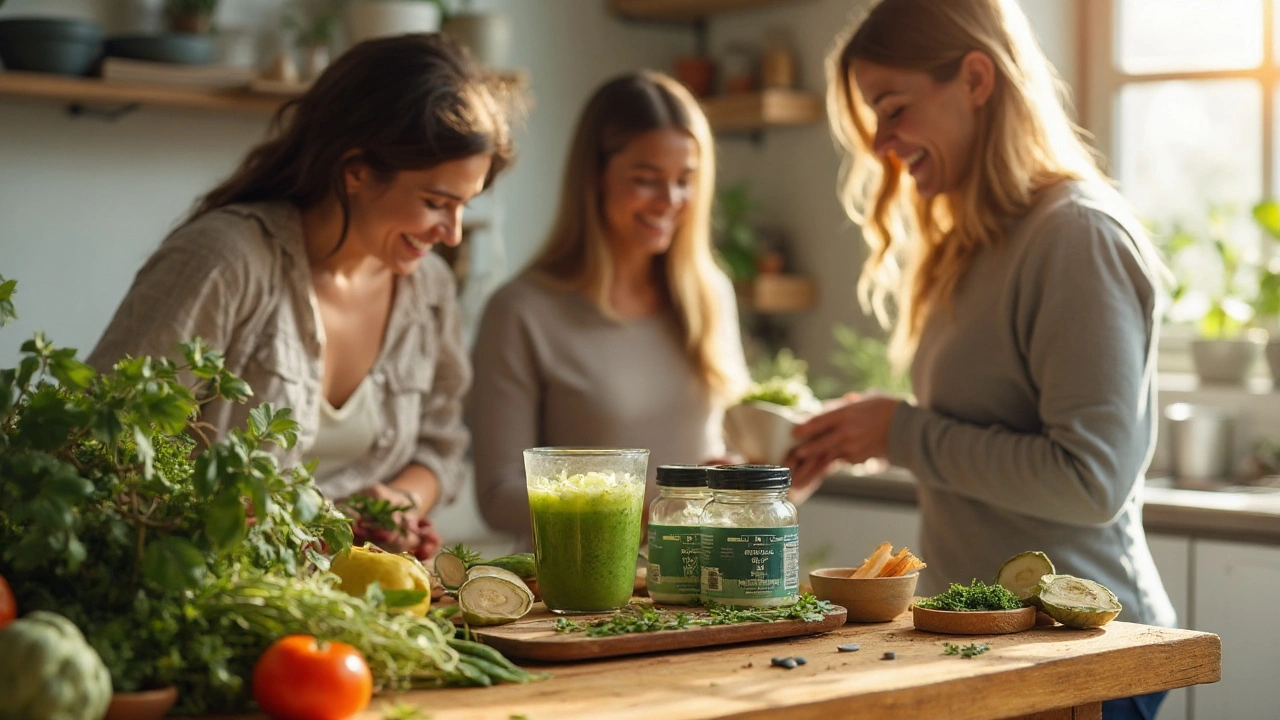Digestion Made Simple: Easy Tips for a Happier Gut
Ever feel bloated after a meal or wonder why some foods sit heavy? Your gut is a busy engine, and a few everyday habits can keep it running smooth. Below are straightforward ways to improve digestion without over‑complicating things.
What Your Gut Needs to Work Right
First, think of digestion as teamwork. Stomach acid, enzymes, good bacteria, and the muscles in your intestines all play a role. When one piece is off, you might notice gas, cramps, or irregular bathroom trips. The good news is you can support each part with simple choices.
Stay hydrated. Water helps dissolve nutrients and moves food through the intestines. Aim for eight glasses a day, and sip a glass before each meal to kick‑start the process.
Chew thoroughly. Breaking food down in your mouth gives enzymes a head start. Try putting your fork down between bites and chew each bite at least 20 times.
Eat fiber the right way. Soluble fiber (found in oats, apples, and beans) forms a gel that slows digestion, keeping blood sugar steady. Insoluble fiber (whole grains, nuts, and vegetables) adds bulk and speeds up waste removal. Balance both and increase gradually to avoid excess gas.
Foods That Help, Foods That Hurt
Some foods are natural digestion boosters. Yogurt, kefir, and fermented veggies supply friendly bacteria that keep the gut lining healthy. Ginger tea can relax stomach muscles and reduce nausea, while pineapple contains bromelain, an enzyme that helps break down proteins.
On the flip side, high‑fat fried foods and processed snacks can slow stomach emptying, leading to that uncomfortable full feeling. Too much coffee or alcohol may irritate the stomach lining, causing acid spikes. If you notice particular foods causing trouble, keep a quick food journal – just a line a day – and see which items repeat.
For those dealing with chronic issues like irritable bowel syndrome (IBS) or inflammatory bowel disease (IBD), specific adjustments matter. Low‑FODMAP diets, which limit certain fermentable carbs, often reduce bloating and pain. If you have joint pain from arthritis, you might find the article "Arthritis and Inflammatory Bowel Disease: Understanding the Link and Managing Both" helpful—it explains how gut inflammation can flare up joint symptoms and offers practical steps.
Mindful eating also plays a big role. Turn off the TV, focus on the food, and notice flavors and textures. This slows down your eating pace, giving your body time to signal fullness and start proper enzyme release.
Lastly, move a little after meals. A short walk (10‑15 minutes) stimulates intestinal muscles and helps prevent reflux. You don’t need a marathon; just a gentle stroll can make a big difference.
By staying hydrated, chewing well, balancing fiber, choosing gut‑friendly foods, and keeping active, most people can smooth out everyday digestion hiccups. If problems persist, it’s worth chatting with a healthcare professional to rule out underlying conditions.
Remember, your gut reacts to daily habits. Small, consistent changes add up to a calmer, more efficient digestive system—so you can feel lighter, sharper, and ready for whatever the day brings.
Artichoke Supplements: The Secret to a Healthier Daily Routine in 2025
Discover how artichoke dietary supplements support liver health, cholesterol, and digestion. Get research-backed facts, practical tips, and easy ways to use them daily.
